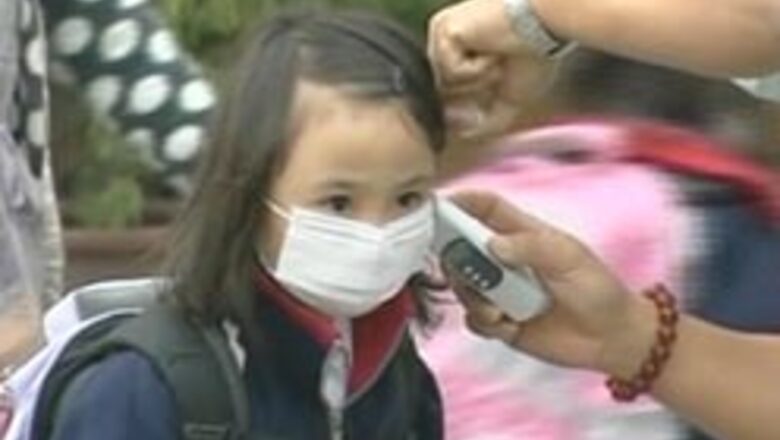
views
Hong Kong: The Hong Kong government has ordered more than half a million primary and kindergarten students on Wednesday, to stay home for two weeks because of a flu outbreak in one of the world's most densely populated cities.
The government also asked one of its top scientists to investigate the deaths of three children. But the World Health Organization said only two of the children tested positive for the flu, and both had other diseases as well.
The outbreak has not been linked to bird flu, which was detected in birds in Hong Kong. Bird flu remains difficult for humans to catch, but scientists fear the virus that causes it could eventually mutate into a form that spreads easily among humans.
The government has ordered all kindergartens, primary and special education schools closed for two weeks starting Thursday, Health Secretary York Chow said. School children — along with teachers and parents — wore masks Wednesday as they walked outside.
The schools had been expected to start their Easter Holiday in a little over a week, though the date varies with each school. Chow said bringing the holiday forward would help reduce cross infection among school children and calm public fears.
"When children are at school, it's very hard to keep them still and prevent them from contacting each other. They may not listen to orders and wear masks or wash their hands. This is an effective measure from an infectious disease standpoint," Chow said.
The closure will affect nearly 560,000 students at 1,745 schools, according to enrollment figures from the 2006-2007 academic year.
Since March 6, health officials have recorded nine flu outbreaks, mostly at schools, affecting 532 people in the territory of nearly 7 million.
Chow emphasized that there was no sign of "any significant change of the virus that makes it exceptionally more virulent than the usual flu virus."
The flu cases so far are scattered across the territory, which does not suggest the spread of an exceptionally virulent virus, P.L. Ho, a scientist at the University of Hong Kong's microbiology department, said in an interview with Cable TV.
He also said the illness might have been unusually severe in younger children because it was their first infection with certain flu viruses.
"We need to be careful but we don't need to panic," said Yuen Kwok-yung, who is heading a panel of scientists to study the recent child deaths. Yuen was one of the scientists who studied SARS, or severe acute respiratory syndrome, when it killed 299 people here after surfacing in southern China in November 2002.
WHO spokesman Gregory Hartl said the first child who died tested negative for all types of influenza viruses. The second child tested positive for the flu but also suffered from an underlying metabolic disease. The third — a 7-year-old boy who died Tuesday — had both the flu and encephalitis.
Chow said authorities became concerned because five classmates of the 7-year-old boy have also been hospitalized. Officials have said that some of his classmates were believed to be suffering from the flu, and the government closed the school earlier this week.
The five classmates who were still hospitalized were in stable condition, Chow said.


















Comments
0 comment